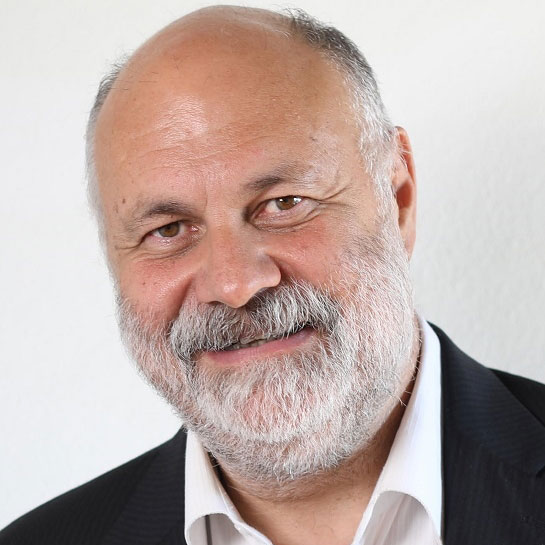
RICCARDO VALENTINI
Premio Nobel per la Pace nel 2007 e membro dell’Intergovernmental Panel on Climate Change
ISOLA URSA: La cultura della sostenibilità ambientale
KLIMAHOUSE – BOLZANO, 22-25 GENNAIO 2020
Prof. Riccardo Valentini
University of Tuscia – DIBAF
Fondazione CMCC – Strategic Advisor
RUDN University, Moscow – Head of Smart Urban Nature Laboratory
Riccardo Valentini graduated at University of Rome “La Sapienza” in Physics. In 1987 he became researcher at the University of Tuscia, Faculty of Agriculture continuing to work on plant – climate interactions. He was one of the pioneer of terrestrial carbon flux measurements and coordinated a global network of more than 600 flux towers (FLUXNET) placed in several world ecosystems in North and South America, Europe, Australia, China, Japan and Africa. He was coordinating lead author in the 3rd IPCC (Intergovernmental Panel on Climate Change) and 5th report on Climate Impacts and Adaptation. He is Lead Author of the IPCC Special Report Climate Change and Land Use. He has been awarded of the Zayed Intern. Prize for the Environment as member of the Millennium Ecosystem Assessment Board (2006), and recently of the “ Ernst Heckel” Prize of the Federation of European Ecological Societies (2015) and of the Medal of the Italian Academy of Science “of the XL” for Physics and Natural Sciences (2018). He is Thompson Reuters highly cited scientist in 2016 and 2017 and Clarivate highly cited scientist in 2018. Laurea Honoris Causa Facultè Universitaire des Sciences Agronomiques de Gembloux, Belgium (2006). Laurea Honoris Causae Russian State Agricultural University – Timiryazev Academy, Moscow, Russia (2015); Laurea Honoris Causae Financial University, Moscow, Russia (2017), Laurea Honoris Causae “Georgian Technical University”, Tblisi, Georgia (2018).
His main research interests concern GHG balances in relation to land use and forestry, including relevant feed-backs on the global biogeochemical cycles and climate impacts. Recently his research is dedicated to develop new technologies and big data analytics for ecosystem services monitoring and predictions of climate change impacts, particularly on forest at tree level. He invented the TreeTalker sensor to understand and quantify responses of tree physiological parameters to climate extremes and early monitoring of tree decline.
